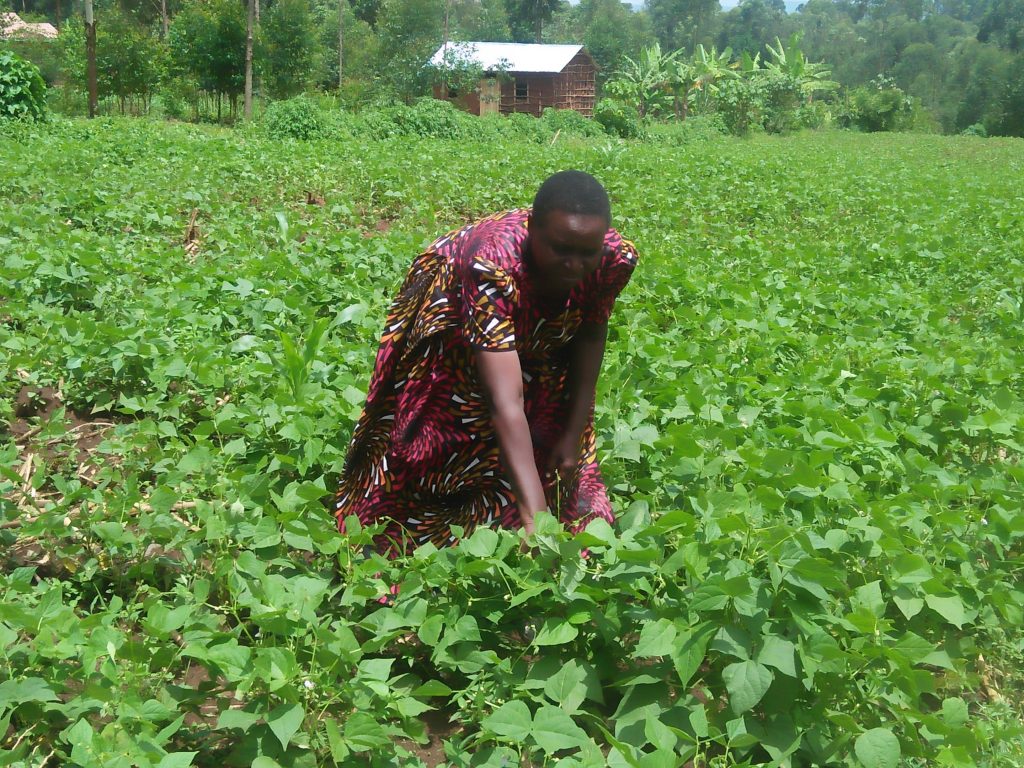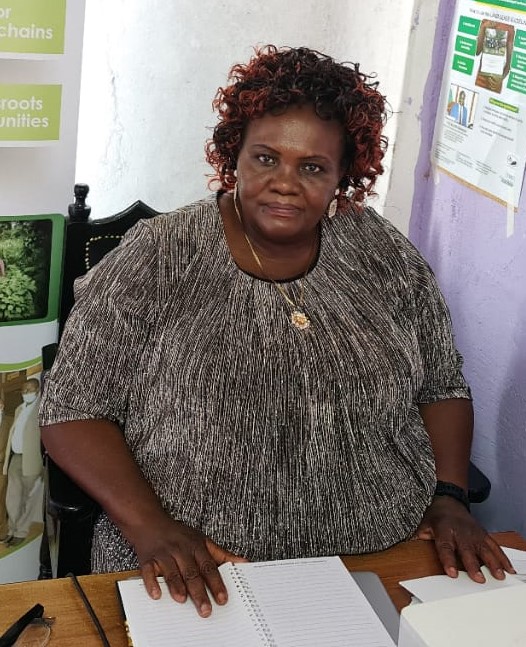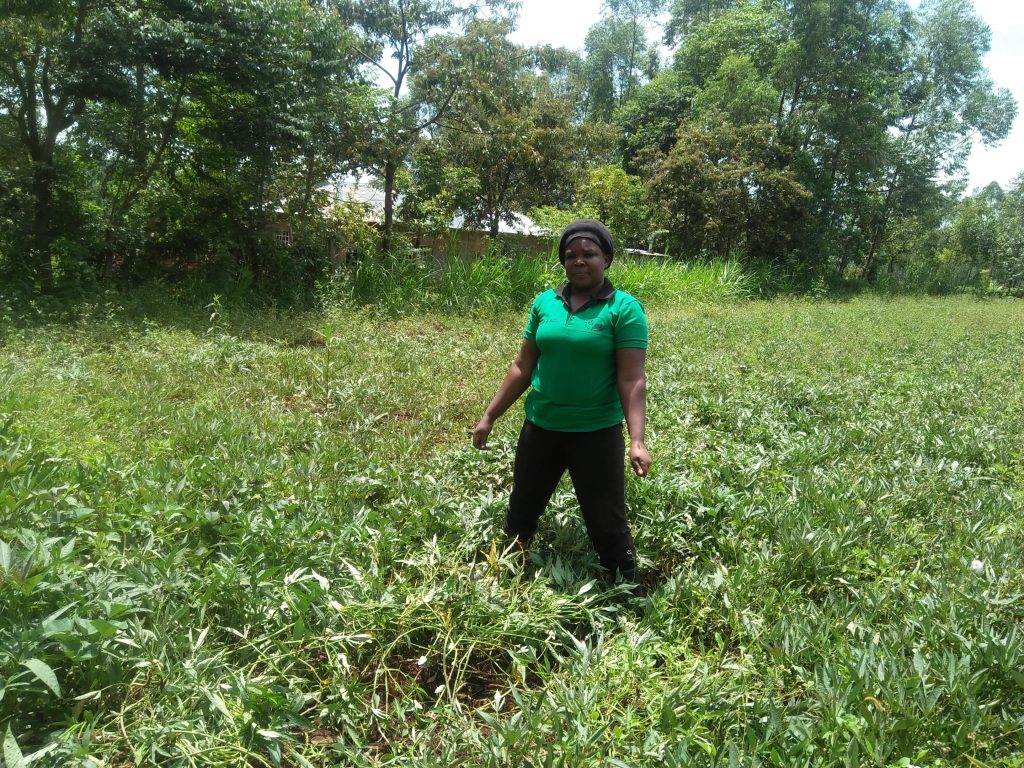By Gift Briton
With research showing that up to 61 million people across East Africa including Kenya are facing hunger, experts advise that exploring all opportunities for maximizing food production, including increasing women and youth involvement in sustainable agriculture, is critical in accomplishing food and nutritional security.
However, researchers note that despite their key contribution to agriculture, most women have limited access to agricultural lands.
According to a 2016 research done by TMG think tank for sustainability in Kenya across three counties including Kakamega, restricted land access was found to be the major hindrance to women and youth’s participation in agriculture.
During the time of the study, the most common ways of accessing land for agriculture were either through inheritance or purchase- a process that is time consuming and expensive since most women lack the collateral to guarantee them bank loans for purchasing land.
As a result, most women farmers in Kakamega County turned to leasing farming land to circumvent the challenge of limited access to land, with research showing that up to 38% of households in Kakamega county lease land as an alternative way to increase family food. Unfortunately, many of these leases are discontinued or prematurely terminated mainly due to conflicts arising between the lessor and the lessee as a result of improper land lease agreements.
Mary Sari, a smallholder farmer, recounts her experience six years ago when one morning a brother to the land lessor attacked and injured the people who were helping her in preparing a land she had leased for two years. She says that other than being made to take care of the hospital bills of the people injured, she was also forced to prematurely terminate the lease.
Sari’s ordeal is among the many stories shared by most women farmers on land leasing in Kakamega county that inspired Shibuye Community Health Workers(SCHW), a women-led grassroots organization working with communities in Kakamega County, to spearhead the search for a sustainable solution around land leasing to help women meet their household food and income needs.

According to Violet Shivutse, Founder and Director, SCHW, even though land access is key to food production, few people particularly women invested in agricultural practices because land leasing in the County was fraught with a lot of conflicts and insecurities due to a lack of procedures streamlining it.
She adds, “with the development of community-led land lease guidelines most women who never had access to land before are now able to do farming and participate in training like one-acre fund, sustainable land use and soil rehabilitation.”
Furthermore, although there are existing legal provisions for leasing land in the county’s portal, these provisions are considered by many community members to be unclear, costly, and to serve only well-off individuals leasing large tracts of and/or high-value land.
Therefore, to boost security around land leasing in Kakamega County, SCHW alongside other implementation partners, developed community-driven land lease guidelines that are accessible to all farmers and tailor-made to fit their needs.
The process was piloted in two wards – Isukha Central and Isukha West- and has since been hailed as a game changer by most farmers and leaders across the county including the then Governor, Wycliffe Oparanya.
According to him, the guidelines are good and the best thing the county can do is to legalize them into law and popularize the process to other wards in Kakamega.

The community-led land lease guidelines state that before leasing land, a farmer must first identify the land he/she wants to lease, authenticate ownership, confirm the land boundaries, agree on conditions of use, sign the lease agreement form (obtained from the assistant chief’s office) with a witness and thereafter deposit a copy of the lease agreement at the office of the assistant chief.
With the guidelines now in place, Sari who owns a small portion of land has embarked on leasing farming land which she has been using to grow maize and beans for the last two years. According to her, having secure access to farming land enabled a reliable and steady flow of food for the family, adding that she is also able to educate her adopted daughter by supplying the school with beans and maize.
In order to come up with land lease guidelines, an exercise which took six months, SCHW began by conducting a baseline survey to establish land-related issues in the locality and the roles of local institutional stakeholders – governmental and non-governmental – and influence their subsequent engagement in the process.
It is during this preparatory phase that the organization also identified the socio-cultural organizations within the local community that could hinder or act as catalysts for land lease guidelines development process.
And with the root cause of the problem and possible influencers already established, the organization embarked on a consultation meeting with key institutional stakeholders including, county ministries of land, agriculture and forestry, County Commissioner, ward administration, chiefs and assistant chiefs, youth and women leaders as well as opinion leaders.
During this meeting, the organization shared with stakeholders’ the opportunities that land leasing presents in increasing secure access to farming land. They also discussed associated challenges in land leasing experienced in the locality and how to manage land-related conflicts in general and conflicts over leased farming lands in particular. Towards the end of the meeting, the stakeholders gave their inputs in designing land lease guidelines, a process which, according to Shivutse, helped in building co-ownership and acceptance of the land lease guidelines.
The women-led organization then carried awareness creation and popularization in various sub-locations to seek community input to the development of the guidelines. This meeting involved women and youth representatives of farming groups, community-based organizations, special groups and local government administrators including chiefs and assistant chiefs, village elders and heads of Nyumba Kumi.
Thereafter, they created a drafting committee for each sub-location which comprised thirty people. Through consultations with legal and agricultural experts, the drafting committee discussed in-depth the appropriate land lease guidelines for their respective sub-locations.
Once the Drafting Committees completed consultations in their respective areas, a final drafting committee comprising seven members was formed to consolidate and harmonize the outputs from each drafting committee into a single unified land lease document.
The final draft was then presented for approval in a ward-level meeting in the presence of local institutional leadership including chiefs, assistant chiefs, women and youth leaders, community organizations, agriculture and land representatives where revisions and corrections were made to ensure compliance with legal requirements.
“The stakeholders endorsed the draft and gave inputs including how and where to get the application forms for land leasing, who the custodian of the application forms would be, punishment for breaching land lease agreements as well as how to conserve a leased land,” Shivutse said.
Finally, the community-led land lease guidelines were validated and launching was done at sub-location level where community members were invited and educated on how to use the guidelines.
At the moment, the land lease guidelines have already been adopted in four sub-counties in Kakamega whereas the organization is waiting to popularize the guidelines in the remaining eight sub-counties of Kakamega before tabling the community-led land lease guidelines document for approval into law by the County’s county assembly.
“As of May 2022, monitoring and evaluation report revealed that food production in the piloted areas has doubled with up to 216 acres of land rehabilitated through land leasing and more than 248 farmers, most of whom are women now doing sustainable farming using the land lease guidelines, “said Doreen Magotsi, monitoring and evaluation leader, SCHW.
Most farmers say that the guidelines have brought an end to conflicts around land leasing, some of whom are saying that it has even led to a reduction of gender-based violence because increased participation in agriculture would mean that most women are now self-dependent.
Furthermore, most of these farmers grow food crops including maize, beans, arrow roots, sweet potato and indigenous vegetables such as cowpea(kunde), jute mellow (mrenda), spider plant (sagaa), and African nightshade(managu), thereby ensuring that families have readily available food throughout the year, Magotsi adds.
Meanwhile, the guidelines not only help in solving land lease-related conflicts but also take into consideration farming techniques and land sustainability where farmers are advised to practice rotational farming and agroforestry.
Alice Anami, land lessor, narrates how the community-led land lease guidelines have helped in rehabilitating her two-acre piece of land that had been lying bare for over five years. Anami owns five acres of land but only tills three acres. The remaining two acres were left bare after being warned by her grandfather against leasing it out on account of mismanagement and degradation by previous lessees.
However, she was finally allowed to lease it out after holding a lengthy discussion and sharing the land lease guidelines with her grandfather. She recalls that other than being able to get money to cater for her family’s basic needs, leasing has also made the land more fertile.
Moreover, Jesca Idadi, a member of Shuruba women group operating under SCHW, also notes how she was able to lessen the fee burden on her husband after partly paying school fees for their daughter by selling over 12 bags of potatoes she harvested from leased land, with each bag going for approximately Ksh. 1200, adding that this happened after she attended training by SCHW where she learned how to do sustainable agriculture and lease land using the community-led land lease guidelines.

Although issues around land leasing cut across all regions in Kenya, Shivutse notes it is not right to just copy and paste the community-led land lease guidelines in other regions. Instead, they can use the same process of holding consultation meetings, awareness creation, and involvement of community members and local leaders to come up with context-specific guidelines.
She notes, “this process can work anywhere but it has to be tailor-made to suit the land lease condition in that particular area to increase the likelihood of community members engaging with and participating in the development process.”
Shivutse adds that the development of these guidelines was quite time-consuming and costly where they had to incur some expenses including hiring meeting halls and hotels, providing meals and refreshments, transport and other communication-related costs, among others.
Also, at the beginning of the process, some local leaders got threatened thinking that SCHW had come to give them competition in their jobs.





